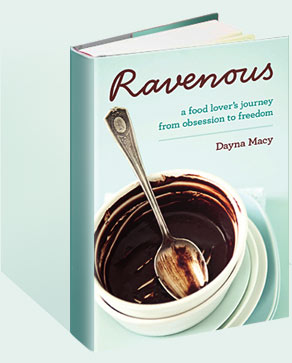The Passover Seder
My mother and in-laws are old. I married a Jewish atheist. Ergo, I’m in charge of the Seder.
There is an atavistic part of me that feels fondly about this Spring ritual. Except now, I’m in charge, and I’m tired. I work a lot. My husband got a job in Seattle and is gone for a good chunk of the week. My house is a mess. And we have a Seder to prepare for 12 people by Saturday (we celebrate on the second night).
My mother told me that I owe it to my children to make my Seder longer than last year. My kids are in a Jewish school, and as they have told me, once they get Bar Mitzvahed this Fall, they’ve had enough with the Jewish education. That’s fine. It was my responsibility, and my joy, to pass along our heritage.
What I really think my mom was asking me was to make the Seder longer for her. Because she’s 82. Because she has emphysema. Because how many more Seders will she have? So I will.
For the past few years, I’ve been skimming the Maxwell House Hagaddah. The language is tired and old (like me right about now). So I bought a set of the 30 Minute Seder, hoping it will be reasonably fun and intelligent. But if I had my druthers, I’d do the two minute Seder, which appeared on Slate, and goes like this:
The Two-Minute Haggadah
A Passover service for the impatient.
By Michael Rubiner
Illustration by Mark Alan Stamaty.
Opening prayers:
Thanks, God, for creating wine. (Drink wine.)
Thanks for creating produce. (Eat parsley.)
Overview: Once we were slaves in Egypt. Now we’re free. That’s why we’re doing this.
Four questions:
1. What’s up with the matzoh?
2. What’s the deal with horseradish?
3. What’s with the dipping of the herbs?
4. What’s this whole slouching at the table business?
Answers:
1. When we left Egypt, we were in a hurry. There was no time for making decent bread.
2. Life was bitter, like horseradish.
3. It’s called symbolism.
4. Free people get to slouch.
A funny story: Once, these five rabbis talked all night, then it was morning. (Heat soup now.)
The four kinds of children and how to deal with them:
Wise child—explain Passover.
Simple child—explain Passover slowly.
Silent child—explain Passover loudly.
Wicked child—browbeat in front of the relatives.
Speaking of children: We hid some matzoh. Whoever finds it gets five bucks.
The story of Passover: It’s a long time ago. We’re slaves in Egypt. Pharaoh is a nightmare. We cry out for help. God brings plagues upon the Egyptians. We escape, bake some matzoh. God parts the Red Sea. We make it through; the Egyptians aren’t so lucky. We wander 40 years in the desert, eat manna, get the Torah, wind up in Israel, get a new temple, enjoy several years without being persecuted again. (Let brisket cool now.)
The 10 Plagues: Blood, Frogs, Lice—you name it.
The singing of “Dayenu”:
If God had gotten us out of Egypt and not punished our enemies, it would’ve been enough. If he’d punished our enemies and not parted the Red Sea, it would’ve been enough.
If he’d parted the Red Sea—(Remove gefilte fish from refrigerator now.)
Eat matzoh. Drink more wine. Slouch.
Thanks again, God, for everything.
SERVE MEAL.
But I won’t. I’ll do my half hour. I’ll do my duty. And I hope, I know, I’ll feel gratitude that we’ve had another year to sit around the table with each other as a family.
Category: Uncategorized Comment »


